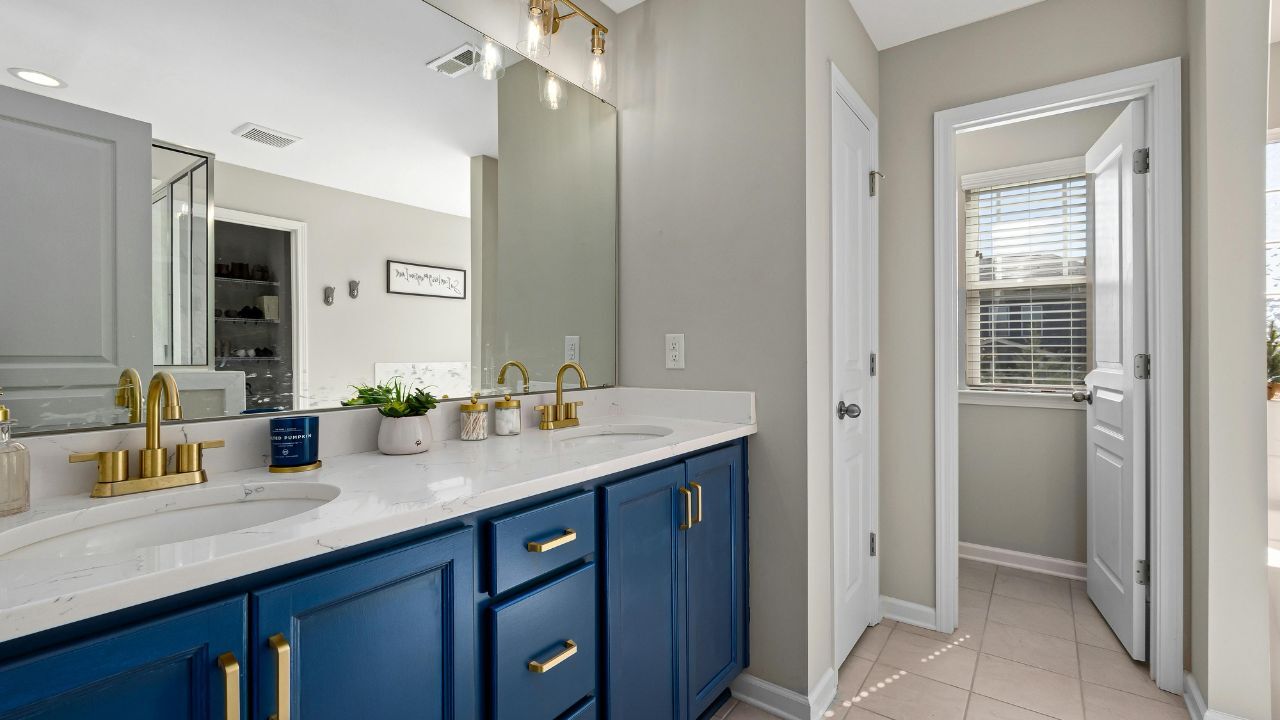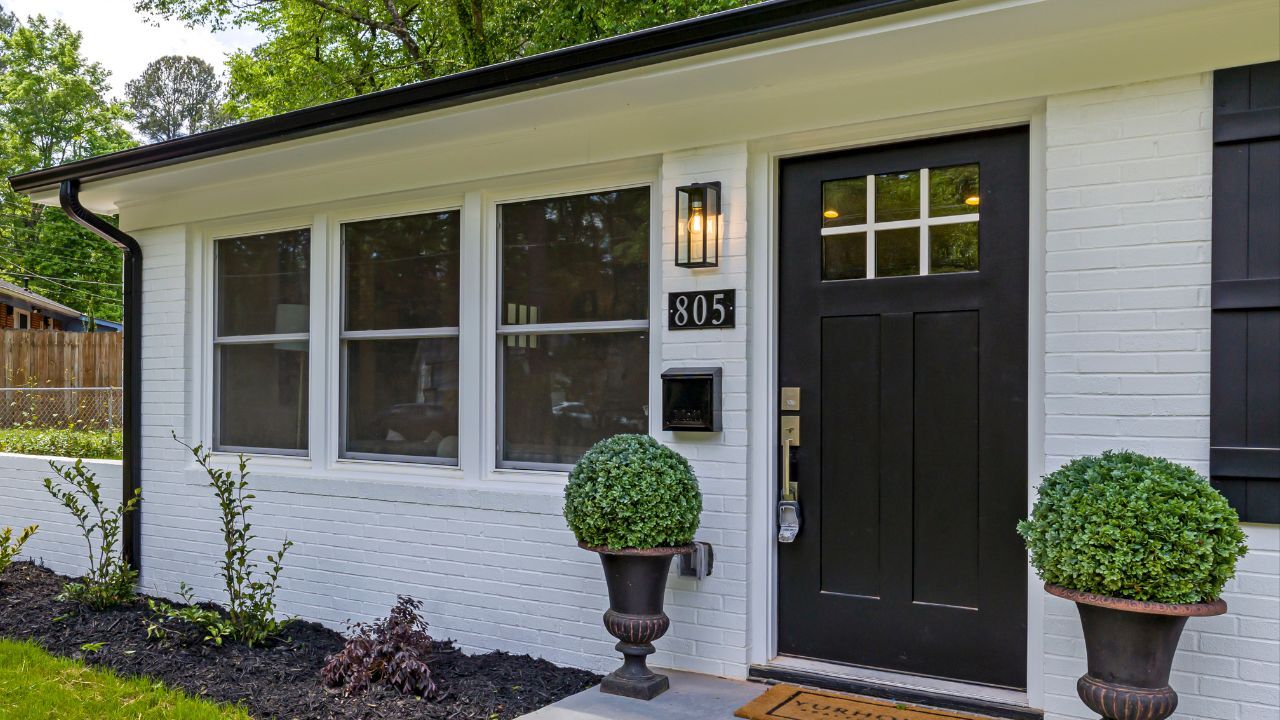 Today, we honor the brave men and women who have served our country with courage, strength, and selflessness. Your service allows us to enjoy the freedoms that make home and community possible.
Today, we honor the brave men and women who have served our country with courage, strength, and selflessness. Your service allows us to enjoy the freedoms that make home and community possible.
As a real estate professional, I am especially grateful for the role homeownership plays in the lives of veterans and their families. Owning a home is more than just having a place to live, it represents stability, pride, and belonging.
The VA home loan program makes this dream more attainable, offering incredible benefits that honor those who have given so much.
To every veteran, and to every family who has supported one, thank you for your service and your sacrifice. Your dedication inspires us all, and it is a privilege to help you find a place to call home.

 Home renovations can be exciting, but not every project adds the same return on investment. Whether you are planning to sell soon or simply want to boost your property’s value, understanding which upgrades offer the best payoff helps you make smart decisions. Strategic improvements can make your home more appealing to buyers and increase its long-term value.
Home renovations can be exciting, but not every project adds the same return on investment. Whether you are planning to sell soon or simply want to boost your property’s value, understanding which upgrades offer the best payoff helps you make smart decisions. Strategic improvements can make your home more appealing to buyers and increase its long-term value. For many homebuyers, the term escrow can sound confusing or even intimidating. Yet escrow is one of the most important parts of a real estate transaction. It ensures that both the buyer and the seller are protected while the details of the sale are finalized. Understanding how escrow works can help you feel confident and informed every step of the way.
For many homebuyers, the term escrow can sound confusing or even intimidating. Yet escrow is one of the most important parts of a real estate transaction. It ensures that both the buyer and the seller are protected while the details of the sale are finalized. Understanding how escrow works can help you feel confident and informed every step of the way. When you start shopping for a home, you will quickly notice that not all properties are created equal. From cozy condos to spacious single-family homes, each property type offers a unique lifestyle, level of maintenance, and investment potential. Understanding the differences helps you choose the kind of home that best fits your goals, budget, and way of living.
When you start shopping for a home, you will quickly notice that not all properties are created equal. From cozy condos to spacious single-family homes, each property type offers a unique lifestyle, level of maintenance, and investment potential. Understanding the differences helps you choose the kind of home that best fits your goals, budget, and way of living. Buying a home is one of the biggest financial moves you will ever make, and while it can feel overwhelming, approaching it the way a real estate professional does makes the process smoother and more strategic. With the right preparation and mindset, you can shop confidently and make smart decisions from start to finish.
Buying a home is one of the biggest financial moves you will ever make, and while it can feel overwhelming, approaching it the way a real estate professional does makes the process smoother and more strategic. With the right preparation and mindset, you can shop confidently and make smart decisions from start to finish.
 Home appraisals are a crucial step in the home buying process. It determines the property’s fair market value and helps lenders decide how much money to loan for the purchase. Ideally, the appraisal matches or exceeds the agreed-upon purchase price. However, when the appraisal comes in lower than expected, it can cause stress for both buyers and sellers. Knowing how to handle this situation calmly and strategically is key to keeping the deal on track.
Home appraisals are a crucial step in the home buying process. It determines the property’s fair market value and helps lenders decide how much money to loan for the purchase. Ideally, the appraisal matches or exceeds the agreed-upon purchase price. However, when the appraisal comes in lower than expected, it can cause stress for both buyers and sellers. Knowing how to handle this situation calmly and strategically is key to keeping the deal on track. A home inspection is one of the most important steps in the home buying process. It gives buyers a clear picture of the property’s condition and can uncover issues that are not visible during a showing. From roofing problems to electrical concerns, an inspection helps ensure you know exactly what you are purchasing. However, once the report arrives, the next step, and negotiating repairs, can feel overwhelming.
A home inspection is one of the most important steps in the home buying process. It gives buyers a clear picture of the property’s condition and can uncover issues that are not visible during a showing. From roofing problems to electrical concerns, an inspection helps ensure you know exactly what you are purchasing. However, once the report arrives, the next step, and negotiating repairs, can feel overwhelming. Buying a home is an emotional and financial journey, and most buyers expect the process to move smoothly once an offer is accepted. However, there are times when a seller decides to back out of the deal. This situation can be stressful, especially for buyers who have already started preparing for closing. Understanding your rights and the possible outcomes can help you respond calmly and confidently.
Buying a home is an emotional and financial journey, and most buyers expect the process to move smoothly once an offer is accepted. However, there are times when a seller decides to back out of the deal. This situation can be stressful, especially for buyers who have already started preparing for closing. Understanding your rights and the possible outcomes can help you respond calmly and confidently.